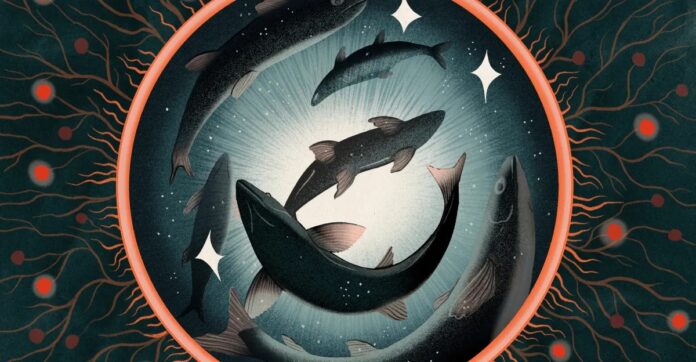For centuries, humans have dismissed fish as primitive, simple creatures – a perspective rooted in historical prejudice and reinforced by the sheer scale of their exploitation. Today, billions of fish are killed annually for food and other purposes, yet our understanding of their experience remains surprisingly contested. The question of whether fish feel pain isn’t merely academic; it impacts how we treat aquatic life and challenges assumptions about sentience in non-human animals.
The Historical Dismissal of Fish Sentience
The underestimation of fish intelligence and sensitivity dates back to ancient philosophers like Aristotle and Plato, who placed them low in the hierarchy of existence. This perspective has persisted for centuries, influencing how we interact with these creatures. We casually use fish as symbols of stupidity (“goldfish memory”) while consuming them in massive numbers, rarely considering the potential for suffering. Even today, many assume fish lack the capacity for complex emotions or pain, a bias that simplifies our moral obligations toward them.
Scientific Advances and the Pain Debate
Recent scientific advancements have shattered the notion of fish as mindless automatons. Studies show they exhibit complex social behaviors, maintain long-term memories, and even use tools. However, the question of whether they feel pain remains contentious. Pain is subjective, making it difficult to prove definitively through scientific methods.
Since the early 2000s, researchers like Lynne Sneddon have demonstrated that fish possess nociceptors – neurons that respond to harmful stimuli. Experiments have shown that fish exhibit behavioral changes consistent with pain, such as reduced appetite, abnormal movements, and altered social interactions when exposed to painful substances. Yet, some skeptics continue to doubt these findings, arguing that these responses may be reflexive rather than conscious experiences.
The Philosophical Roadblock: Consciousness
The core of the debate lies in our limited understanding of consciousness. Descartes’ notion that only humans possess mind has deeply influenced scientific inquiry, creating a bias toward objective, verifiable phenomena. Because consciousness is inherently subjective, proving it in any animal—including fish—is challenging. Some scientists argue that fish lack the necessary brain structures (such as the neocortex) to experience pain, while others counter that this assumption is speciesist and ignores the diversity of neurological systems.
The question of fish pain exposes a broader paradox: we inflict invasive experiments to “prove” sentience while simultaneously questioning the ethical implications of such methods. This raises a critical point: perhaps the question itself is flawed. Why do we demand proof from fish when we readily assume consciousness in other animals?
Why This Matters
The debate over fish pain isn’t just about science; it’s about ethics and our responsibility to non-human life. Ignoring the potential for suffering in aquatic animals reinforces a system of exploitation that prioritizes human interests over their welfare. Recognizing fish sentience would necessitate a reassessment of our practices in fishing, aquaculture, and conservation.
Ultimately, the question of whether fish feel pain may be less important than acknowledging our own biases and the moral implications of our actions. Whether provable or not, the possibility of suffering demands respect and consideration.
The debate forces us to confront uncomfortable truths about our relationship with the natural world and the arbitrary lines we draw between species worth protecting and those we exploit without hesitation.



















































